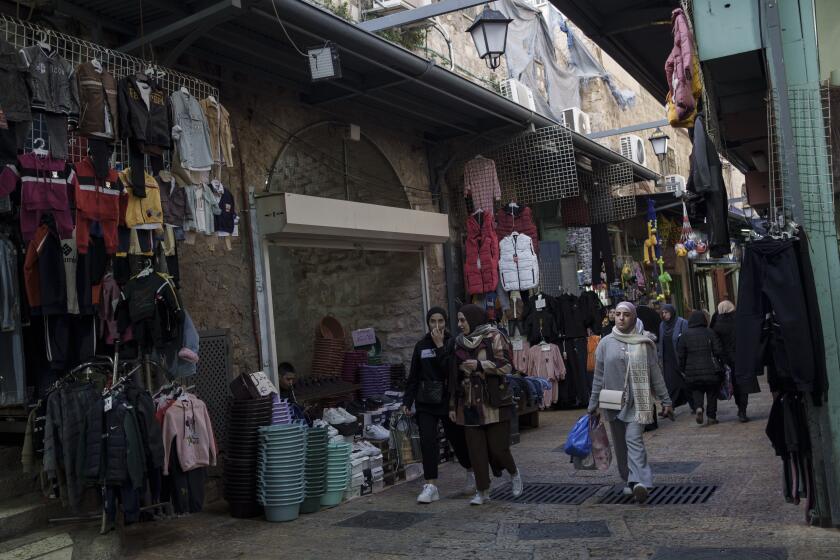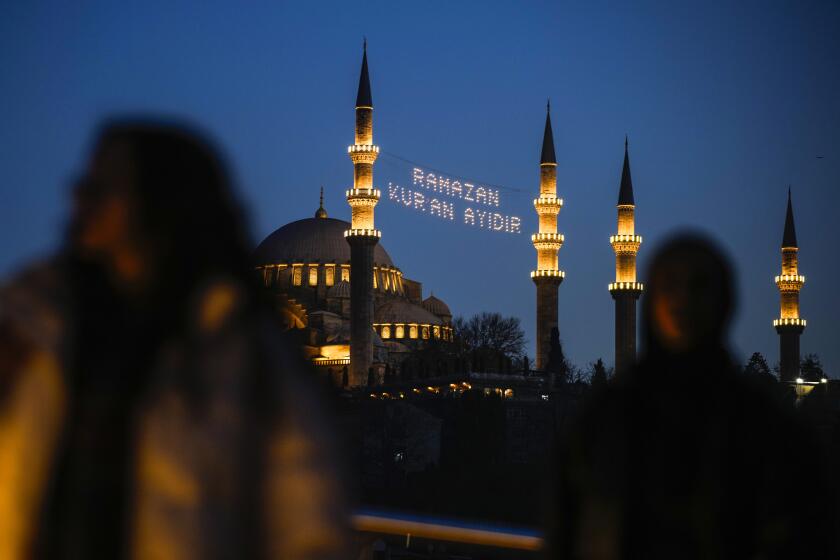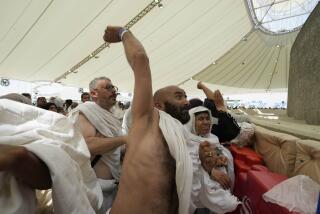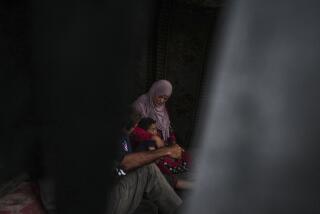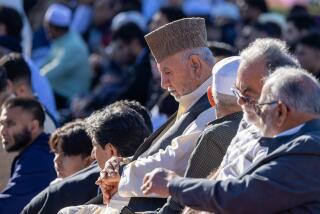What is Ramadan and how do Muslims observe the Islamic holy month?
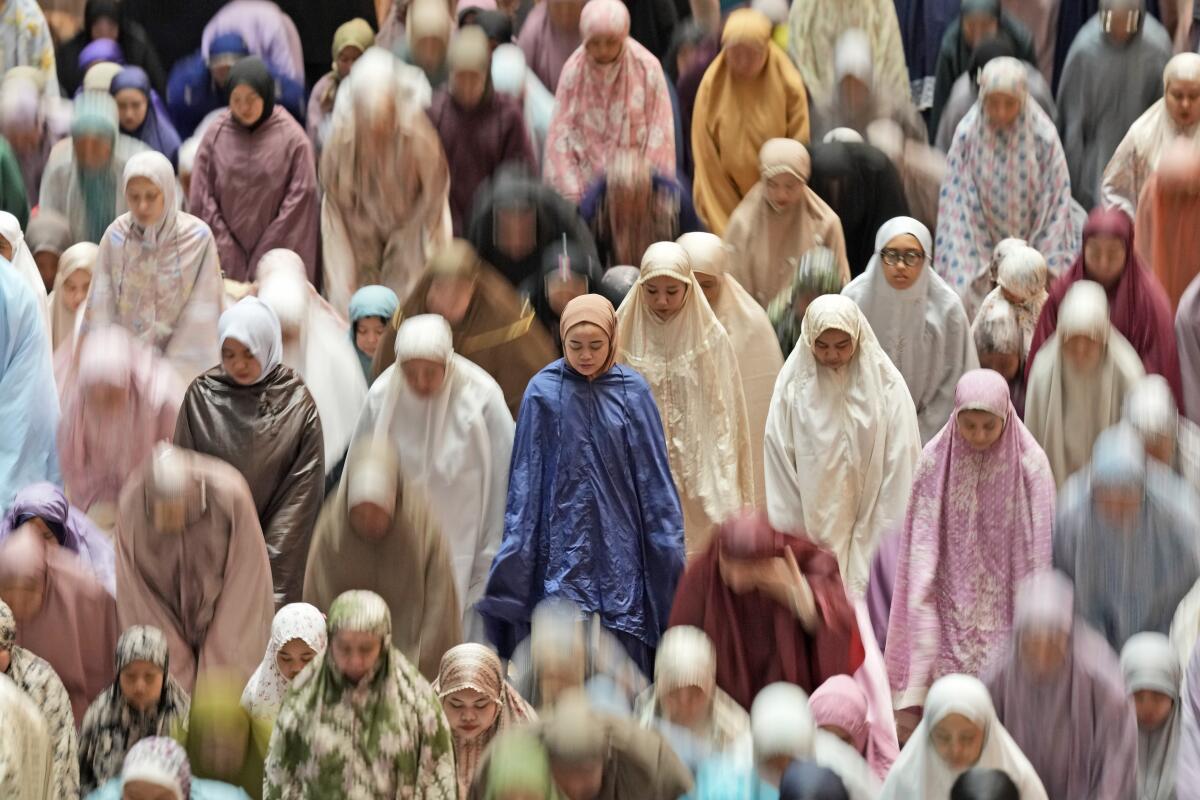
- Share via
Muslims around the world are observing the holy month of Ramadan, with worship, charity, dawn-to-dusk fasting and nightly feasts.
The faithful gather for prayers inside mosques in Muslim-majority countries such as Indonesia, Pakistan and Turkey. They gather outside in New York’s Times Square and in the Gaza Strip.
Ramadan this year comes as the Middle East remains inflamed by the ongoing Israel-Hamas war in Gaza, with tens of thousands of Palestinians killed. Many in the blockaded territory are going hungry; particularly in the devastated north, people are scrambling for food to survive.
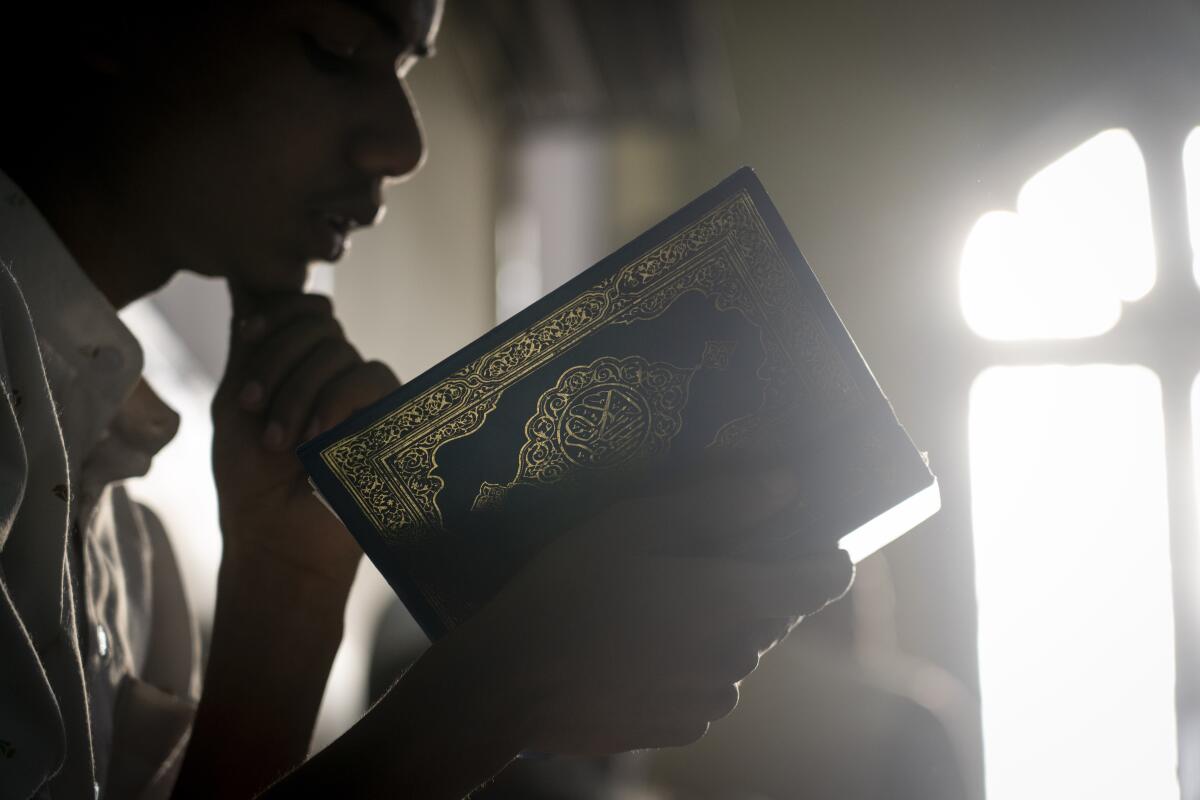
Some Muslims are striving to remain mindful of the Palestinians’ plight during Ramadan, including through making donations, saying prayers or incorporating Palestinian traditional symbols in how they mark the holy month.
On the eve of the Muslim fasting month of Ramadan, Jerusalem’s Old City bears few of its usual hallmarks of festivity.
When is Ramadan?
Ramadan is the ninth month of the Islamic lunar calendar and begins with the sighting of the crescent moon.
For many of the world’s 1.8 billion Muslims, fasting began Monday, after an announcement from officials in Saudi Arabia, which is home to the holiest places in Islam.
Muslim communities may start Ramadan on different days, due to declarations by multiple Islamic authorities around the globe on whether the crescent has been sighted or different methodologies used to determine the start of the month.
Why and how do Muslims fast?
Fasting is one of the five pillars of Islam, along with the profession of faith, prayer, almsgiving and the Hajj pilgrimage to Mecca.
Muslims see various meanings and lessons in observing the fast.
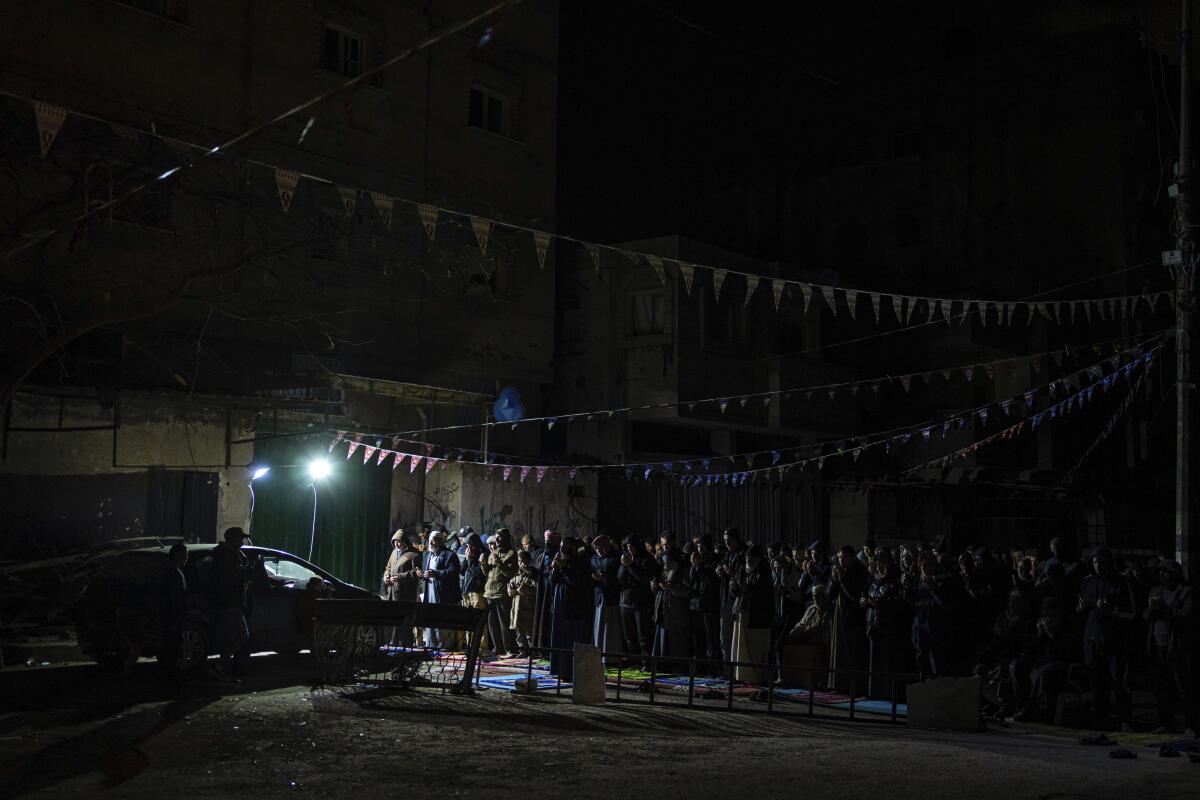
Fasting is regarded as an act of worship to attain God-conscious piety and one of submission to God. The devout see benefits such as practicing self-restraint, cultivating gratitude, growing closer to God, and feeling empathy for the poor and hungry.
Atop the towering minarets dotting Istanbul’s skyline, a 68-year-old artisan toils at a craft that has illuminated the Muslim holy month of Ramadan for generations.
The daily fast in Ramadan includes abstaining from all food and drink; not even a sip of water is allowed from dawn to sunset before breaking the fast in a meal known as iftar in Arabic. Those fasting are expected to also refrain from bad deeds, such as gossiping, and increase good deeds.
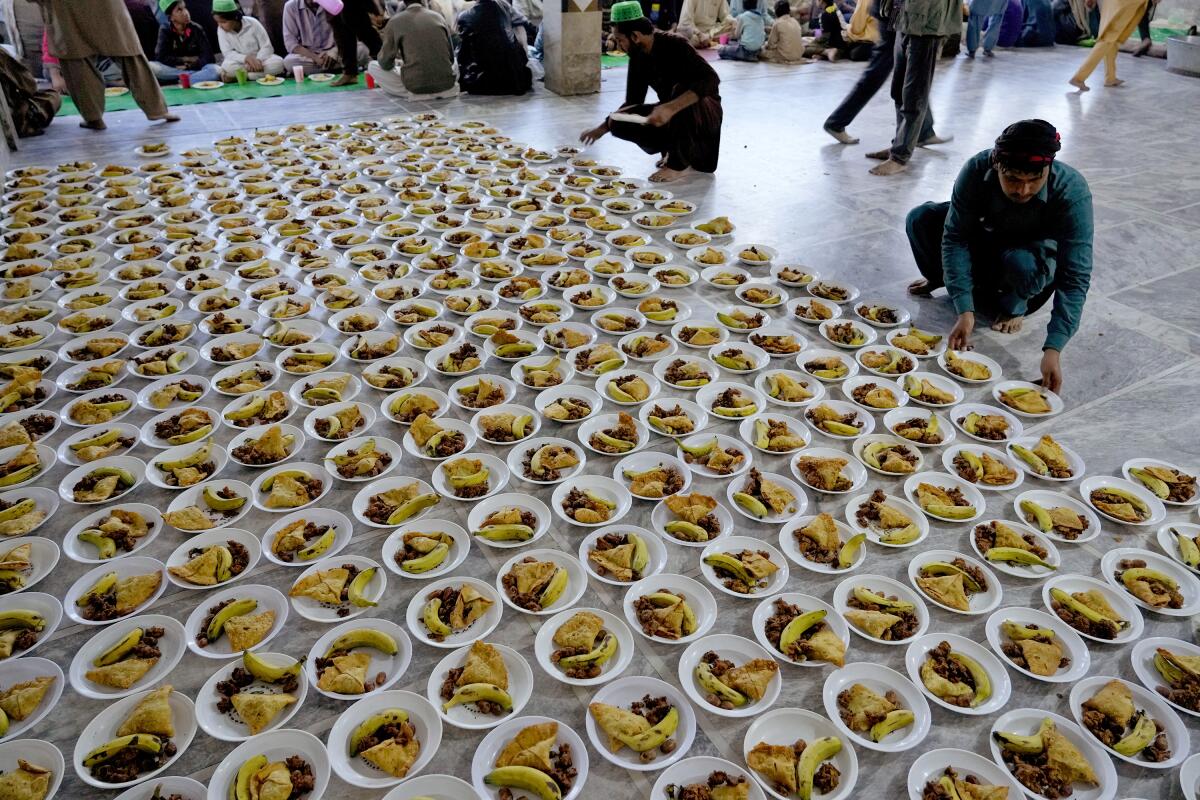
Muslims typically stream into mosques for congregational prayers and dedicate more time for religious contemplation and the reading of the Quran, the Islamic holy book.
Charity is a hallmark of Ramadan. Among other ways of giving, many seek to provide iftar for the needy, distributing Ramadan boxes filled with pantry staples, handing out warm meals alongside such things as dates and juice or helping hold free communal meals.
Muslims eat a predawn meal, called suhoor, to hydrate and nourish their bodies ahead of the daily fast.
Are there exemptions from fasting?
Yes. There are certain exemptions from fasting, such as for those who are unable to because of illness or travel. Those unable to fast due to being temporarily ill or traveling need to make up for the missed days of fasting later. Young children, the elderly, and menstruating, pregnant and breastfeeding women are also exempted.
What are some cultural and social traditions associated with Ramadan?
Muslims are ethnically and racially diverse and not all Ramadan traditions are rooted in religion. Some customs may transcend borders, while others can differ across cultures.
Many social rituals center on gathering and socializing after the daily fast. Some Muslims decorate their homes, put out Ramadan-themed tableware and centerpieces or throng to markets and Ramadan bazaars.
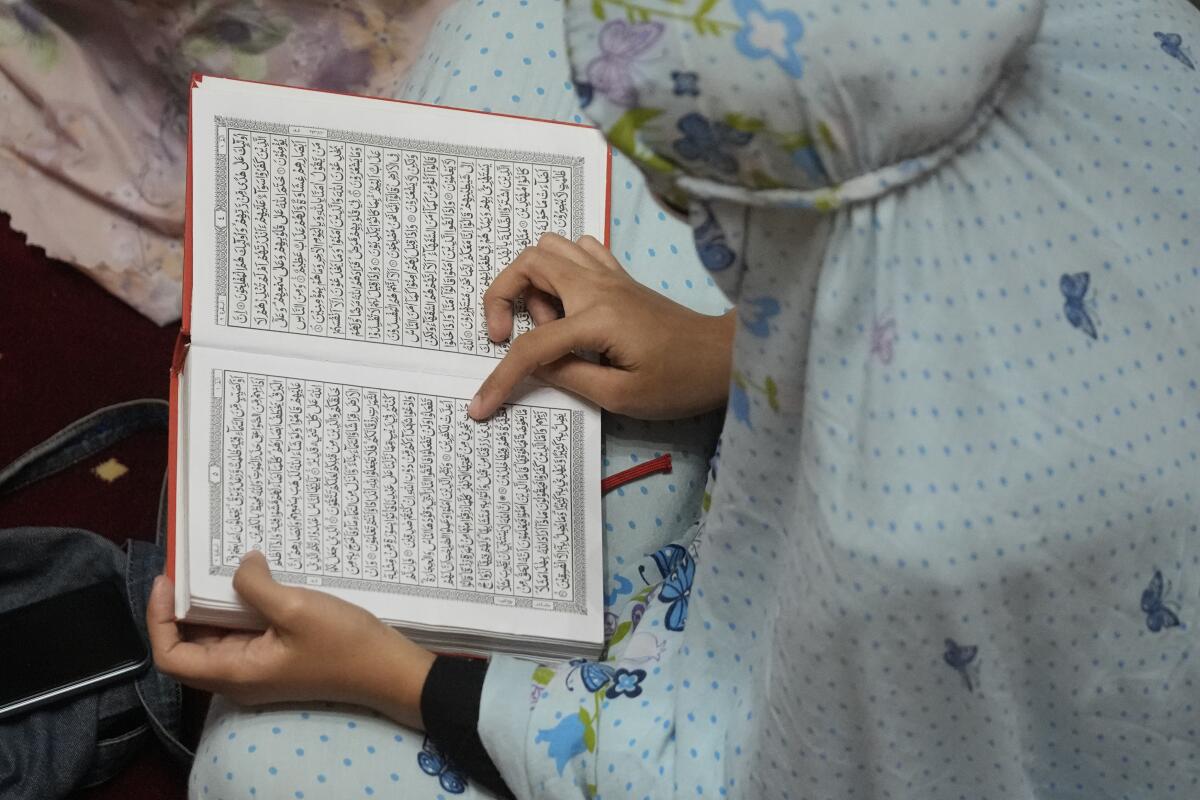
In Egypt, the Arab world’s most populous country, Ramadan is typically a festive time.
Colorful lanterns, in different shapes and sizes, dangle from children’s hands and adorn homes or the entrances of buildings and stores. Ramadan songs may be played to welcome the month. So-called Ramadan tents, featuring food and entertainment, pop up to cater to gatherings.
Ramadan’s soundscape in Egypt has traditionally included the predawn banging on drums by a mesaharati, who roams neighborhoods, calling out to the faithful, sometimes by name, to awake them for the suhoor meal.
New TV shows, communal meals
A lineup of new television shows is another fixture of the month in some countries, and advertisers compete for the attention of viewers.
In various regions, some Muslims worry that the month is being commercialized, and that an emphasis on decorations, TV shows, outings or lavish iftar banquets, especially in the social media era, can detract from Ramadan’s religious essence. Others feel that a balance can be struck and that, done in moderation, such rituals are part of the month’s festive spirit.
In Indonesia, the most populous Muslim-majority country, Ramadan rituals vary across regions, with some influenced by local cultures or other faith traditions.
Thousands of villagers who live on the slopes of Mt. Merapi in Central Java welcome Ramadan with Nyadran, a Javanese ritual influenced by Hinduism and Buddhism that includes visiting, cleaning and decorating ancestors’ graves.
People in Indonesia’s deeply conservative Aceh province slaughter animals during Meugang festivities. The meat is cooked and shared in a communal feast with family, friends, the poor and orphans.
Hundreds of residents in Tangerang, a city just outside the capital of Jakarta, flock to the Cisadane River to wash their hair with rice straw shampoo and welcome the fasting month with a symbolic spiritual cleansing.
After evening prayers, many boys and girls across Sumatra island parade through the streets. They carry torches and play Islamic songs.
In India, home to more than 200 million Muslims, making up a large minority group in the country, stalls lining many streets sell such things as dates, sweets and freshly cooked food. At night, some New Delhi neighborhoods become lively as Muslims head to mosques to attend prayers.
Some Indian Muslims also visit holy shrines dedicated to Sufi saints, sites that are decorated with lights and colorful flowers.
In the United States, home to a diverse, small but growing Muslim population, gathering at mosques and Islamic centers when possible for iftar meals and prayers provides many Muslim families with a sense of community. Some Muslims also organize or attend interfaith iftar meals.
Some big U.S. retailers have started catering to Ramadan shoppers, selling such things as Ramadan-themed decor.
More to Read
Sign up for Essential California
The most important California stories and recommendations in your inbox every morning.
You may occasionally receive promotional content from the Los Angeles Times.
